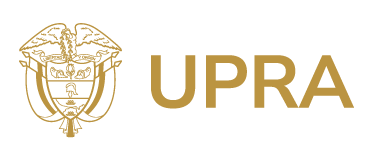Resultados de la búsqueda
-
Cooperation in UPRA
Cooperation in UPRA … priorities of rural agricultural planning with national and international actors, in order to achieve accessible, … Plan, the Agricultural Sector Plan, the National International Cooperation Strategy defined by APC Colombia, …
-
INTERNATIONAL COOPERATION 2019-2022
INTERNATIONAL COOPERATION 2019-2022 …
upraadmin - 21/07/2025 - 01:21
-
UPRA Participates in the Andean Regional Dialogue on Sustainable Agriculture in Lima
… of the Andean Community in partnership with the German Cooperation Agency (GIZ), saw participation from the … production, accelerating competitiveness, and boosting international trade in the agri-food system of the Andean … Regulation (EUDR) and ensure continued access to international markets. The challenges discussed include …
-
URBAN-RURAL LINKAGES: GUIDELINES FOR INTEGRATING THEIR GUIDING PRINCIPLES WITH TERRITORIAL ENTITIES PLANNING INSTRUMENTS
… begins by discussing the terminology of VUR in both international and national contexts, focusing on the various … Programme (UN-Habitat), the Organisation for Economic Co-operation and Development (OECD), and the Economic …
upraadmin - 21/07/2025 - 05:01
-
Juan Pablo Sandoval Castaño
… Communities, and was a consultant at the German Agency for International Cooperation (GIZ), in addition to being a university …
-
Osman Benjamín Vargas Rozo
… strategies. He has led processes in national and international cooperation entities such as Colombia Productiva of the …
-
#RendiCuentasUpra: The Collective Construction of the Productive Planning Plan (POP) for Aquaculture for Human Consumption Advances
… public sources, 8.5% from private sources, and 12.4% from international cooperation. It is important to note that the estimated … in our country with an eye toward national and international markets, " concluded Alexander Rodríguez …

